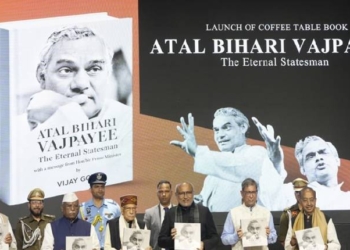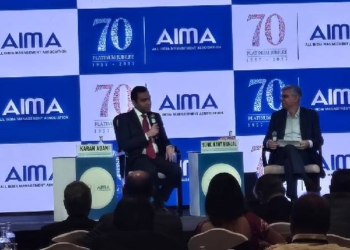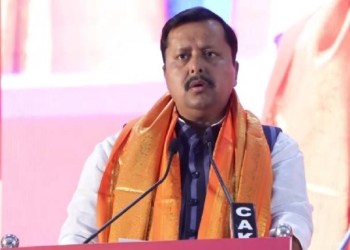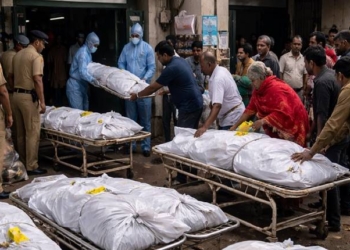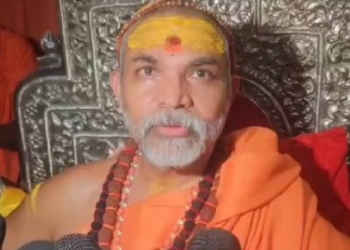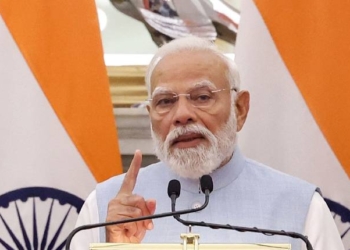Mumbai: Finally, the curtains dropped on the most tumultuous Maharashtra Legislative Assembly ever with Chief Minister Eknath Shinde, Deputy Chief Ministers Devendra Fadnavis and Ajit Pawar submitting the MahaYuti government’s resignation to Governor C. P. Radhakrishnan on Tuesday.
With this, the tenure of the 14th Legislative Assembly, which started after the Oct. 2019 elections – officially ended today and the newly-elected 15th lower house of the state Legislature will come into effect from tomorrow.
In its five-year tenure that massively altered the course of state politics, the 14th Assembly saw three different regimes, three Chief Ministers, three Leaders of Opposition, three Deputy Chief Ministers, two Speakers, two major parties splitting, plus three Governors.
Barely after the October 2019 results were declared, delivering a fractured verdict, the political permutations and combinations suddenly went awry among the previous government of Bharatiya Janata Party-(undivided) Shiv Sena and the Opposition Congress-(undivided) Nationalist Congress Party.
A set of circumstances saw the BJP getting isolated as the new-born Maha Vikas Aghadi of Congress-SS-NCP was all set to grab power with Uddhav Thackeray as the Chief Minister.
At that time, the BJP struck – in the form of a dawn swearing-in ceremony of Fadnavis as Chief Minister and NCP’s Ajit Pawar as Deputy Chief Minister – when the state had just stirred awake and the masses rubbed their eyes in disbelief at the ‘political breakfast’.
However, as widely anticipated, the MVA partners hit back to prevent further damage and the two-men regime collapsed in barely 80 hours, paving the way for Thackeray to take the oath a few days later.
Barely had the Thackeray-led MVA settled down in office, in early 2020, the invisible COVID-19 pandemic hit the world and the state was ‘locked down’ for months.
As the state government was limping back from the pandemic, in June 2022, it was run over by a silent defection crisis, a split and the emergence of Shiv Sena (founded by the late Balasaheb Thackeray in 1966) headed by Eknath Shinde who became the CM in July 2022.
A bitter former Chief Minister Thackeray was left holding the truncated faction, which was later allotted a new name SS (UBT) and a new symbol of a ‘Flaming Torch’.
A year later in July 2023, another mega-shock was in store when the NCP founded by Sharad Pawar suddenly split, with a faction led by his nephew Ajit Pawar joining the MahaYuti government.
Later, Ajit Pawar was allotted the original NCP name and ‘Clock’ symbol of his uncle’s party and the latter was given the name of NCP (SP) and the new poll symbol of ‘Trumpeter’.
The MahaYuti and MVA went into the Lok Sabha polls independently where the latter came up trumps, while the ruling side bit the dust.
Ajit Pawar created new records serving under three different Chief Ministers during a single term – he was the Deputy Chief Minister to Fadnavis (around 80 hours), then Thackeray and later Shinde, both ruling for two-and-half years each.
The Assembly saw three Leaders of Opposition – Fadnavis, Ajit Pawar and Vijay Wadettiwar, with Fadnavis serving as Chief Minister, LoP and Deputy Chief Minister, in the same House.
The House witnessed two Speakers, first Nana Patole (Congress) and later Rahul Narwekar (BJP) presiding over stormy sessions during their respective terms.
However, despite the changes in the government, Deputy Speaker Narhari Zirwal (NCP, Ajit Pawar faction) was left undisturbed for the entire term.
The past five years had three changes in the stately Raj Bhavan at Malabar Hill – Bhagat Singh Koshyari (September 2019 to February 2023), Ramesh Bais (February 2023-July 2024) followed by the incumbent C. P. Radhakrishnan (July 2024 onwards).
After the results of the 15th Assembly were declared, the MVA was virtually erased while the MahaYuti returned to power and the government-formation exercise is currently underway.
(IANS)




